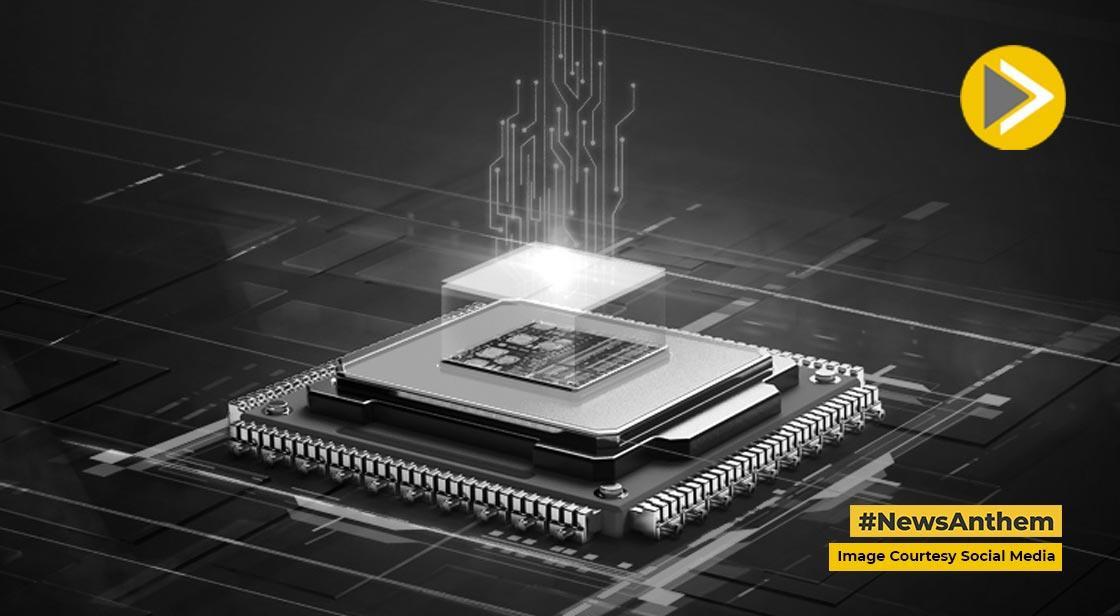India to Manufacture First Chips by 2025, Host AI Impact Summit 2026

News Synopsis
India is on the verge of a historic breakthrough in its technology sector as the country gears up to launch its first-ever homegrown semiconductor chips by December 2025.
This landmark step will reduce India’s reliance on imported chips and strengthen its position as a global technology hub. Minister of State for Electronics and IT, Jitin Prasada, confirmed that this milestone will “mark the beginning of India’s journey as a chip producer for the world.”
With the government’s Semicon India programme worth ₹76,000 crore, partnerships with global players, and initiatives to upskill talent, India is laying the groundwork for a self-reliant and globally competitive semiconductor ecosystem. Alongside, India’s artificial intelligence ambitions are gaining momentum with the IndiaAI Mission and the upcoming AI Impact Summit in 2026.
India’s First “Made in India” Semiconductor Chips
-
India will roll out its first locally manufactured chips by December 2025.
-
This development is part of the Semicon India programme, which provides up to 50% financial support for companies establishing chip fabrication plants, display fabs, and semiconductor packaging facilities.
-
Already, 10 large projects worth ₹1.6 lakh crore have been approved in states such as Gujarat, Assam, Uttar Pradesh, Punjab, Odisha, and Andhra Pradesh.
-
These units are expected to commence production over the next one to five years, generating nearly 29,000 direct jobs and thousands of indirect employment opportunities.
Government Push: Semicon India Programme
Key Highlights of the Scheme
-
Total outlay: ₹76,000 crore
-
Financial support: 50% assistance for eligible projects
-
Coverage: Semiconductor fabs, display fabs, OSAT (Outsourced Semiconductor Assembly and Testing), and chip packaging
Focus Areas
The initiative is not just about manufacturing but also about:
-
Strengthening the chip design ecosystem
-
Encouraging R&D and innovation
-
Building India’s capacity for exports
Strategic Partnerships with Global Powers
To accelerate progress, India has signed semiconductor partnerships with the United States, European Union, Japan, and Singapore. These collaborations aim to:
-
Share best practices and advanced technologies
-
Secure critical supply chains
-
Reduce global dependence on East Asian semiconductor giants
Building a Skilled Workforce for the Chip Industry
Semiconductor production demands highly trained professionals. To meet this requirement:
-
The AICTE (All India Council for Technical Education) has introduced specialized courses in VLSI design and chip manufacturing.
-
These programs are expected to produce a new generation of semiconductor engineers, ready to drive India’s chip-making revolution.
Design Linked Incentive (DLI) Scheme: Boosting Innovation
The government is also nurturing start-ups and MSMEs through the Design Linked Incentive (DLI) scheme.
-
Fund allocation: ₹1,000 crore
-
Beneficiaries: 72 companies approved so far
-
Focus: Chip design for automotive, computer, and communication sectors
-
Impact: Reduction in imports and promotion of exports
India’s Big Leap in Artificial Intelligence
Parallel to its semiconductor push, India is also stepping up efforts in the artificial intelligence sector.
The IndiaAI Mission
Launched in 2024, the mission focuses on:
-
Expanding computing power
-
Building AI models and datasets
-
Supporting AI start-ups with funding
-
Ensuring responsible and safe AI usage
Upcoming AI Impact Summit 2026
India will host the AI Impact Summit in February 2026, where global thought leaders will explore:
-
AI’s role in transforming lives and economies
-
AI applications in sustainability and environmental protection
-
AI-driven innovation for growth in emerging economies
Why Semiconductors Matter for India
Industry experts emphasize that the global semiconductor shortage in recent years exposed India’s heavy dependence on imports, especially from East Asia.
By developing domestic chip manufacturing and design capabilities, India is not just aiming for self-reliance but also preparing to emerge as a global hub for semiconductors, thereby securing its supply chains and contributing to the global market.
Conclusion
India’s upcoming semiconductor ecosystem, supported by the Semicon India programme, DLI scheme, and international collaborations, is poised to transform the nation into a chip-making powerhouse. With the first Made-in-India chips launching in 2025 and the AI sector expanding rapidly, India is building the foundation for technological sovereignty and global competitiveness.
This dual push in semiconductors and AI marks India’s entry into a new era of digital transformation, creating opportunities for innovation, jobs, and long-term economic growth.
You May Like









